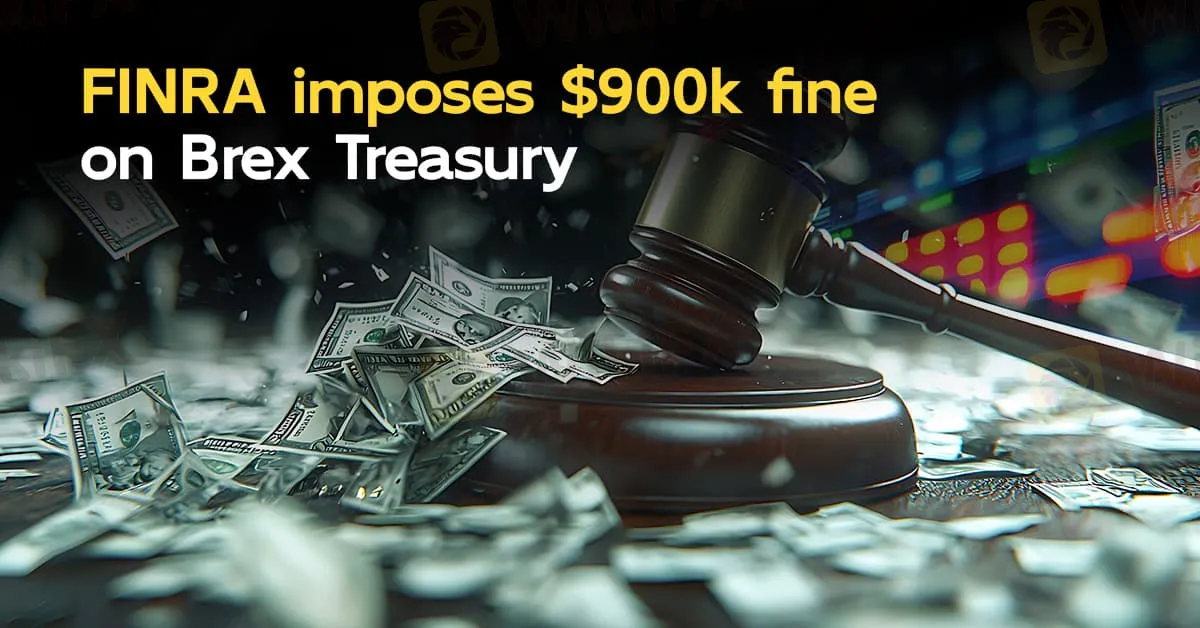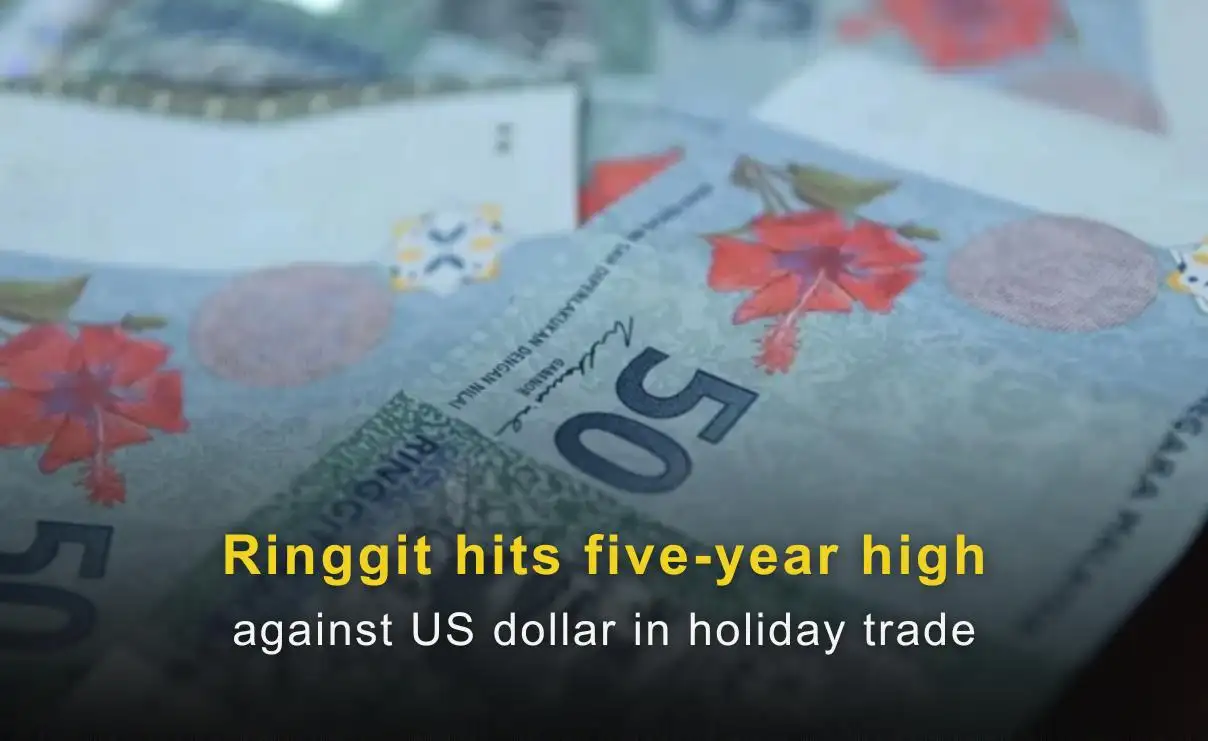Ringgit hits five-year high against US dollar in holiday trade
The Malaysian ringgit extended its rally, reaching a five-year high against the US dollar, trading in a narrow range of RM4.04-RM4.05.
简体中文
繁體中文
English
Pусский
日本語
ภาษาไทย
Tiếng Việt
Bahasa Indonesia
Español
हिन्दी
Filippiiniläinen
Français
Deutsch
Português
Türkçe
한국어
العربية
Abstract:Brex Treasury LLC has reached a settlement with the Financial Industry Regulatory Authority (FINRA) to resolve allegations related to its anti-money laundering (AML) compliance practices. As part of the settlement, Brex Treasury has agreed to pay a fine of $900,000 and accept a censure.

Brex Treasury LLC has reached a settlement with the Financial Industry Regulatory Authority (FINRA) to resolve allegations related to its anti-money laundering (AML) compliance practices. As part of the settlement, Brex Treasury has agreed to pay a fine of $900,000 and accept a censure.
The settlement stems from Brex Treasurys use of an automated identity-verification algorithm that failed to meet AML requirements. The algorithm, which was intended to verify the identities of beneficial owners and customers, had several critical shortcomings.
Algorithm Design Flaws
Initially, Brex Treasurys identity-verification system relied on a limited set of customer information—names and phone numbers—to match identities with those in third-party databases. This approach proved inadequate, as it did not collect all the necessary identifying details, such as dates of birth, addresses, or identification numbers, required under the Bank Secrecy Act (BSA) regulations.
In January 2021, the firm began collecting more comprehensive data, including names, dates of birth, addresses, and identification numbers. Despite this, the system still fell short. The algorithm was designed to approve accounts based on matches in vendor databases, but it did not adequately address discrepancies in the date of birth or address, which could signal potential identity fraud.
Fraud Check Limitations
Brex Treasurys automated fraud checks, which included an external fraud score from a third-party vendor, were also insufficiently rigorous. The fraud score, intended to assess the risk of identity fraud, was not always accompanied by thorough manual reviews of discrepancies flagged during fraud checks. As a result, the firm approved accounts that had significant red flags.
Inadequate Manual Reviews
The firms manual customer screening process was equally flawed. From 2020 to 2021, Brex Treasury approved hundreds of potentially fraudulent accounts. These accounts attempted transactions exceeding $15 million using funds that failed to settle. Many deposits were recalled or rejected due to issues such as insufficient funds, leaving the firm unable to recover the funds or verify customer identities.
Regulatory Violations
The failures in Brex Treasury‘s AML practices led to violations of FINRA Rules 3310(b) and 2010. These rules mandate that firms maintain adequate policies and procedures for AML compliance. The firm’s inability to effectively vet customer identities and prevent fraudulent transactions highlighted significant gaps in its compliance framework.
Settlement Details
In addition to the $900,000 fine, Brex Treasury has agreed to a censure as part of the settlement with FINRA. The censure and financial penalty underscore the importance of robust AML practices and the need for firms to ensure that their identity verification systems are designed to meet regulatory standards.
This settlement serves as a reminder for financial institutions to continuously evaluate and improve their compliance mechanisms to prevent similar lapses and protect against financial crime.

Disclaimer:
The views in this article only represent the author's personal views, and do not constitute investment advice on this platform. This platform does not guarantee the accuracy, completeness and timeliness of the information in the article, and will not be liable for any loss caused by the use of or reliance on the information in the article.

The Malaysian ringgit extended its rally, reaching a five-year high against the US dollar, trading in a narrow range of RM4.04-RM4.05.

WikiFX has launched the “Inside the Elite” Interview Series, featuring outstanding members of the newly formed Elite Committee. During the committee’s first offline gathering in Dubai, we conducted exclusive interviews and gained deeper insights into regional market dynamics and industry developments. Through this series, WikiFX aims to highlight the voices of professionals who are shaping the future of forex trading — from education and compliance to risk control, technology, and trader empowerment.

As WikiEXPO Dubai concludes successfully, we had the pleasure of interviewing Robert Hahm, the Founder and CEO of Algorada. Robert Hahm is a seasoned financial executive who has successfully transitioned from managing traditional assets to founding a cutting-edge fintech platform. As the Founder and CEO of Algorada, he leverages decades of experience in portfolio management to bridge the gap between financial domain knowledge and the power of AI.

The U.S. National Futures Association (NFA) has filed charges against Forex Wizard, a Japan-based forex trading operation, and its principal Mitsuaki Kataoka, accusing them of failing to process customer withdrawal requests promptly.
